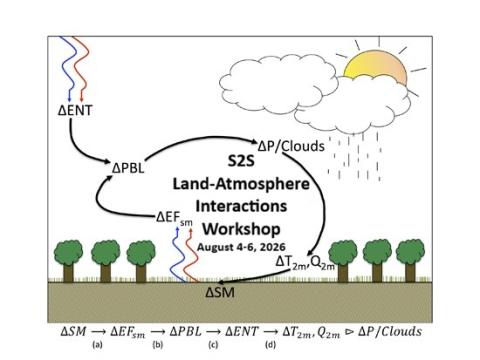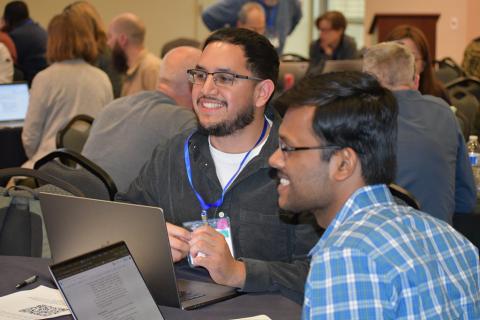Accelerating Earth System Predictability Research
Environmental extremes—such as heat waves, floods, droughts, wildfires, and solar storms—are becoming more disruptive and complex, posing growing challenges to societal safety, security, and planning. Addressing these challenges requires deeper understanding of the fundamental processes that govern Earth system predictability across timescales from hours to decades and spatial scales from local to global. This complexity demands research across interconnected domains, including the atmosphere, ocean, land, water, and geospace.
ESPAT is an NSF NCAR-led initiative that accelerates research to uncover the processes that shape predictability and integrates knowledge across disciplines, time horizons, and scales. ESPAT aims to enable more usable Earth system information to support national resilience.
A Collaborative Effort
ESPAT brings together scientists from NSF NCAR, universities, and other research organizations to advance predictive understanding through coordinated, interdisciplinary research. The initiative strives to:
▪ Advance modeling and data assimilation approaches that span scales and system components.▪ Integrate observations and models to improve understanding of key processes.▪ Leverage artificial intelligence and machine learning alongside physics-based tools.▪ Apply convergence research approaches and foster co-development with users.▪ Build partnerships across academic, agency, and practitioner communities.
ESPAT supports NSF NCAR’s mission to enhance and extend capabilities of the academic research community and to connect cutting-edge science with real-world applications. By advancing understanding of Earth system predictability and supporting the development of next-generation tools, ESPAT contributes to broader national efforts to enhance resilience. Together with the research community, we are laying the scientific foundation for more reliable, actionable prediction capabilities that empower communities to anticipate risks and make informed decisions.
First Focus Area: Subseasonal-to-Seasonal Predictability
Based on input from staff, UCAR members, and the broader scientific community, ESPAT’s first focus area is subseasonal-to-seasonal (S2S) predictability, defined here as two weeks to three months. This is a critical but underdeveloped timescale for anticipating high-impact events.
S2S predictability sits at the intersection of weather and longer-term prediction and presents opportunities to unify modeling approaches, understand key sources of predictability, and improve the usability of subseasonal forecasts for planning and preparedness across many sectors.
Evolving Focus Areas
ESPAT is designed to be flexible and responsive to emerging science needs. In addition to its initial emphasis on S2S predictability, ESPAT is expanding into other areas critical to advancing Earth system predictability across timescales, including space weather, hydrological predictability, and atmospheric composition and emissions. NSF NCAR will develop the focus areas of the themes through targeted workshops, community engagement, and collaborative research planning.
ESPAT Space Weather Workshop Report now available!
Read the April 2024 Community Workshop Report
Thank you to everyone who participated in the April 2024 ESPAT community workshop. The report is now available.
Join the ESPAT online community
We’ve created a community forum on the UCAR Commons platform to foster collaborations, post events, and share relevant work.
To join the ESPAT community, complete this form and be sure to request to join the Earth System Predictability Across Timescales sub-community at the bottom of the form. The sub-community is available to anyone who wants to participate and is not limited to University Corporation for Atmospheric Research (UCAR) members.
Questions?
Contact predictability@ucar.edu.

